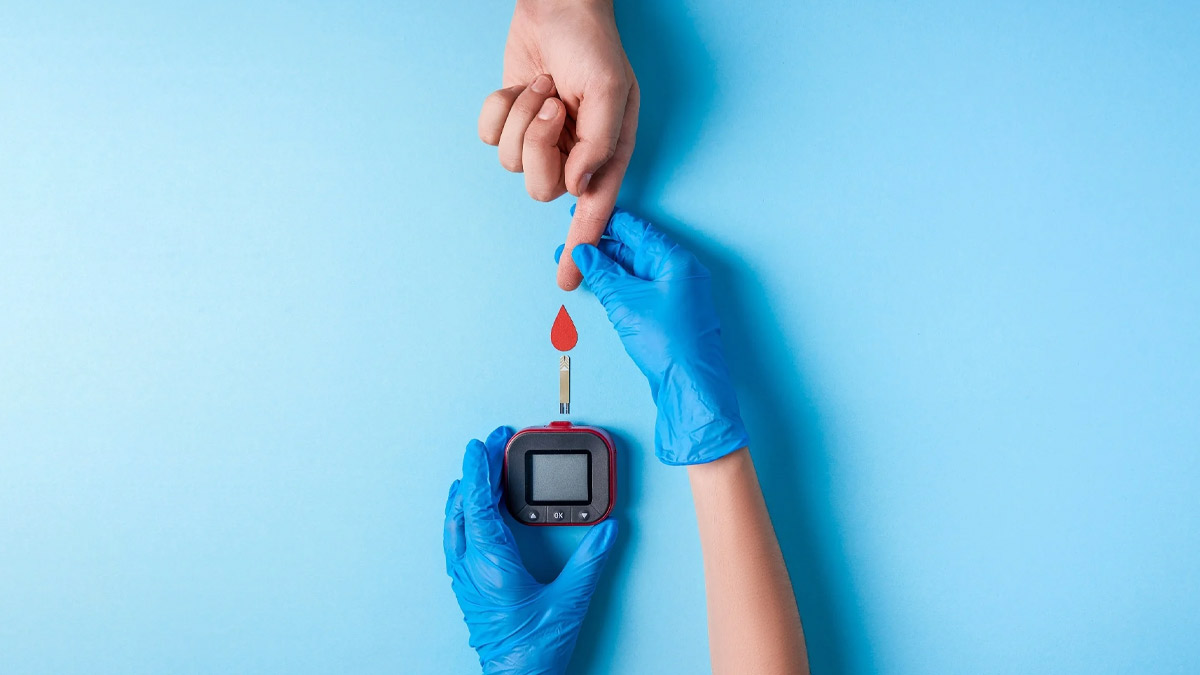
Recent research has shed light on the role of vitamin D (VD) in managing and preventing type 2 diabetes mellitus (T2DM). The study published in Nutrients highlights how this vital nutrient may influence glycemic control and pancreatic function, potentially offering new avenues for diabetes management.
Table of Content:-
Understanding the Burden of Diabetes
Diabetes is a leading cause of serious health complications, including kidney failure, cardiovascular diseases, and amputations, significantly impacting public health systems. T2DM accounts for over 90% of all diabetes cases, characterised primarily by inadequate insulin production and reduced sensitivity to insulin. With rising global obesity rates and sedentary lifestyles, the urgency to explore effective management strategies has never been greater.
Vitamin D, traditionally associated with bone health, is increasingly recognised for its broader health implications, particularly in metabolic conditions like diabetes. Studies indicate that low VD levels may heighten the risk of developing T2DM, prompting researchers to investigate its potential protective effects on pancreatic β-cells, which are critical for insulin secretion.

The Connection Between Vitamin D and Insulin Function
While VD is well-known for its essential role in calcium metabolism and bone health, its impact on insulin sensitivity and pancreatic β-cell function is gaining attention. Research shows that VD can stimulate insulin secretion by binding to specific receptors on β-cells. This binding activates genes responsible for insulin synthesis, glucose transport, and β-cell growth, suggesting that adequate levels of VD could enhance overall glucose homeostasis.
Moreover, various studies have demonstrated that VD supplementation can lower glycated haemoglobin (HbA1c) levels, a key marker of long-term blood sugar control. For instance, a randomised controlled trial noted a significant decrease in HbA1c following VD supplementation, highlighting the nutrient’s potential role in T2DM management.
Also Read: Low-Carb Diet Can Replace Medicines for Type 2 Diabetes, New Study Reveals
Insights from Recent Studies on Vitamin D Supplementation
The relationship between VD and glycemic control appears multifaceted. Some research indicates that vitamin D supplementation can reduce fasting blood glucose levels and insulin resistance, while others report minimal effects. These discrepancies may stem from differences in study design, population characteristics, and baseline VD levels among participants.
Notably, some trials have specifically looked at different demographics. For example, older adults with prediabetes showed significant reductions in HbA1c and fasting glucose levels after VD supplementation. Similarly, adolescents with T1DM or T2DM experienced meaningful improvements in glucose control when given high doses of VD.
Addressing Diabetes-Related Complications
The role of vitamin D in mitigating diabetes-related complications, such as cardiovascular diseases and diabetic retinopathy, remains an area of active investigation. While some studies suggest that VD supplementation can reduce cardiovascular risk factors, such as heart failure, large-scale trials have yielded mixed results. For example, a trial involving over 25,000 participants found no significant protective effects of VD on cardiovascular events over five years.
Conversely, there is emerging evidence linking VD deficiency to an increased risk of diabetic retinopathy, a common complication of diabetes. Some studies have indicated that higher serum levels of 25-hydroxyvitamin D correlate with a lower prevalence of diabetic retinopathy among individuals with diabetes, suggesting that maintaining adequate VD levels may be crucial for preventing this condition.
Also Read: 10,000 Steps Is A Myth; Here's What Science Says You Should Do Instead
The Need for Further Research
Despite promising insights, the inconsistencies in study results underscore the need for further research to clarify the precise relationship between vitamin D and T2DM. Factors such as individual genetic variability, differences in lifestyle, and baseline health status could influence how individuals respond to VD supplementation.
Future studies should focus on understanding the optimal dosages of vitamin D and the mechanisms behind its effects on glucose metabolism and insulin function. Additionally, research should consider the differences in responses across various populations, including children, older adults, and individuals with existing metabolic disorders.
Bottomline
Vitamin D may play a significant role in managing and potentially preventing type 2 diabetes through its influence on insulin production, secretion, and overall glucose metabolism. While the evidence supporting VD's benefits is compelling, the variability across different studies emphasises the need for personalised approaches in vitamin D supplementation. Continued research in this area may unlock new strategies for tackling one of the world's most pressing health challenges, potentially transforming the landscape of diabetes care.
Also watch this video
How we keep this article up to date:
We work with experts and keep a close eye on the latest in health and wellness. Whenever there is a new research or helpful information, we update our articles with accurate and useful advice.
Current Version